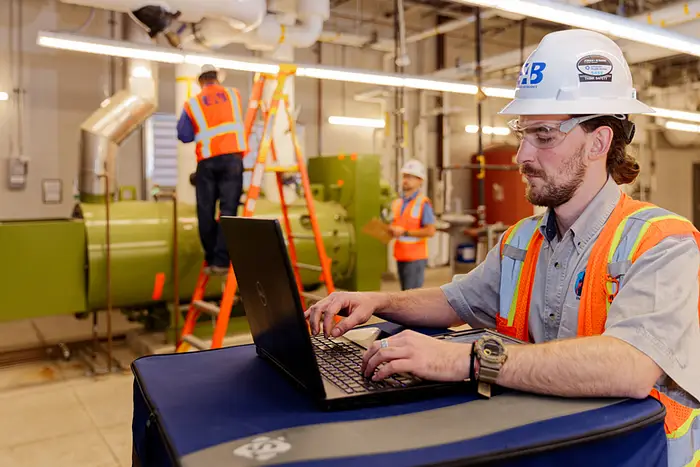ISO 10993-18 Polymer Mechanical Stability Testing
The ISO 10993 series of standards provides a framework for evaluating the biocompatibility of medical devices. Among these, ISO 10993-18 specifically addresses the mechanical stability testing of polymers used in medical devices. This test is critical because it ensures that materials and components remain stable under conditions expected during use.
During this testing, a polymer sample undergoes stress to evaluate its resistance to deformation or degradation over time. The testing simulates real-world scenarios such as patient handling, mechanical actions within the body, and other stresses that could potentially affect the device’s integrity. This process is essential for ensuring long-term safety and reliability of medical devices.
The test setup typically involves subjecting a polymer sample to defined stress conditions using specific apparatus designed for this purpose. The specimen preparation includes precise cutting and conditioning according to ISO standards, which ensures accurate and reproducible results. Once prepared, the sample is subjected to cyclic loading or static load until failure occurs.
The acceptance criteria for passing this test are based on whether there is no significant degradation of the polymer properties after testing. This can be measured through various means such as tensile strength retention, elongation at break point, and other mechanical property changes. Compliance with these criteria ensures that the polymer maintains its intended function and does not compromise patient safety.
Failure to meet the specified acceptance criteria may indicate potential issues with the material selection or design of the device. Therefore, this test is crucial for quality assurance throughout product development stages. It helps identify any flaws early on so they can be addressed before mass production begins. Additionally, passing such tests adds credibility and trustworthiness to your medical devices in regulatory bodies' eyes.
In summary, ISO 10993-18 polymer mechanical stability testing plays a vital role in ensuring the safety, effectiveness, and durability of polymers utilized within medical devices. By adhering strictly to this standard during development stages, manufacturers can significantly reduce risks associated with product failures or recalls later down the line.
Understanding how different factors like temperature, humidity, and pressure influence polymer behavior under stress is key to interpreting test results correctly. For instance, higher temperatures might accelerate degradation processes; thus, understanding these variables helps tailor tests more accurately reflective of real-world conditions experienced by medical devices in use.
Benefits
Performing ISO 10993-18 polymer mechanical stability testing offers numerous benefits for manufacturers and developers working within the medical device industry. One significant advantage is improved product quality, which directly translates into better patient outcomes.
By conducting thorough mechanical stability tests early in the design phase, you can catch issues that could otherwise lead to costly recalls or failures once products reach market. This proactive approach also enhances brand reputation by demonstrating a commitment to producing safe and reliable medical devices.
The test results provide valuable insights into material performance under various stress conditions, allowing for informed decisions regarding material selection and design modifications if necessary. These data points contribute significantly towards achieving regulatory compliance requirements set forth by bodies like the FDA or EMA.
Furthermore, successful completion of these tests can expedite clinical trials and regulatory approvals due to pre-emptive validation of critical aspects related to biocompatibility and safety. This streamlines processes for both manufacturers and governing authorities involved in the approval process.
In conclusion, incorporating ISO 10993-18 polymer mechanical stability testing into your quality assurance protocols yields substantial long-term advantages that ultimately enhance overall product performance while fostering trust among patients and healthcare providers alike.
Industry Applications
The application of ISO 10993-18 polymer mechanical stability testing spans across numerous segments within the medical device industry. One notable area is orthopedic implants, where materials need to withstand significant forces without degrading over time.
In cardiovascular devices such as stents or heart valves, ensuring that polymers remain stable even under extreme pressures and temperatures is crucial for maintaining proper function and patient safety. Similarly, in neurovascular applications involving catheters and guidewires, robust mechanical properties are paramount to prevent device malfunction during procedures.
For implantable drug delivery systems, polymer integrity must be maintained throughout the lifecycle of the product to ensure consistent medication release rates. This testing ensures that the chosen polymers can endure the rigors associated with long-term implantation without compromising efficacy or causing adverse reactions.
Bioresorbable polymers used in sutures and other temporary implants also benefit from this type of evaluation, as it helps determine whether these materials degrade at appropriate rates post-surgery. Compliance with ISO 10993-18 ensures that all polymer-based medical devices meet stringent industry standards, thereby promoting trust among patients and clinicians.
Environmental and Sustainability Contributions
The implementation of ISO 10993-18 polymer mechanical stability testing contributes positively to environmental sustainability initiatives within the medical device sector. By ensuring that polymers used in devices maintain their integrity over extended periods, manufacturers can design products that last longer before needing replacement.
This reduces waste generation associated with frequent replacements or disposables that don't meet durability expectations. As a result, it promotes more efficient resource utilization and minimizes environmental impact throughout the product lifecycle.
Furthermore, this testing encourages innovation in sustainable materials research by identifying polymers capable of enduring harsh conditions without compromising biocompatibility. Such advancements contribute to creating greener alternatives for traditional single-use plastics commonly found in medical applications.
Incorporating ISO 10993-18 into quality assurance protocols also fosters a culture of continuous improvement within manufacturing processes, leading to reduced energy consumption and emissions during production cycles. Overall, adherence to this standard supports broader sustainability goals while enhancing the reliability of medical devices.





